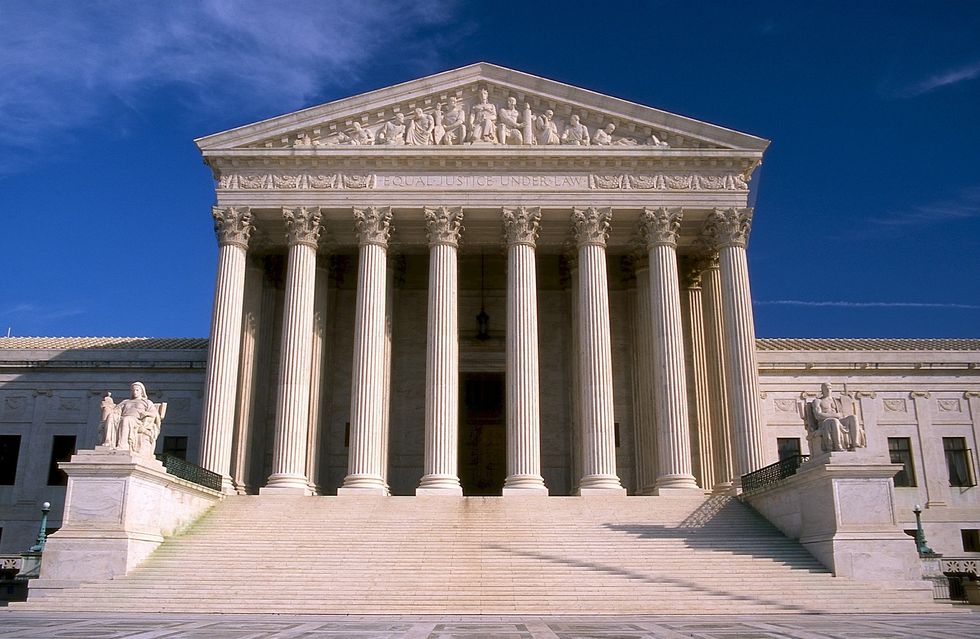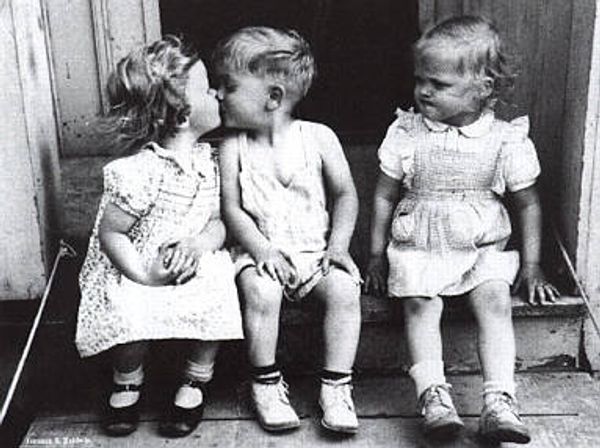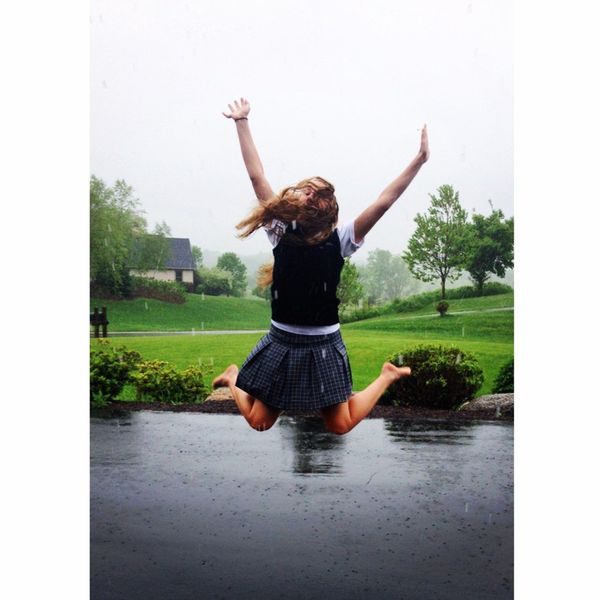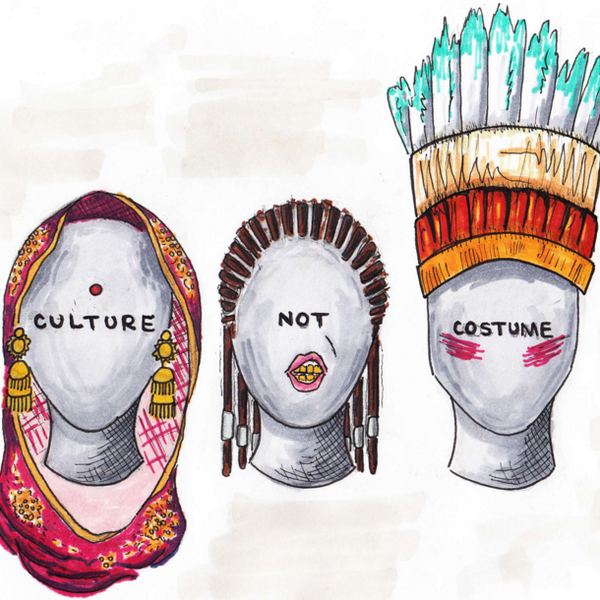With the June 27th announcement that Anthony Kennedy will retire from the Supreme Court at the end of July, political fervor has ramped up on both sides of the aisle.
Why?
Justice Anthony Kennedy was traditionally seen as a moderate. In fact, after the retirement of Sandra Day O'Connor in 2006, Kennedy seemed to pick up her role as a key swing vote in many cases, including certain cases pertaining to abortion rights and Obergefell v. Hodges (2015), which legalized same-sex marriage throughout the United States.
More significantly though is not the loss of Kennedy's moderate vote, but its replacement with a solid conservative one, as many pundits are predicting President Trump will seek to do. And in an election year to boot.
This election year wrangling is getting particularly heated. If one will recall, in 2016 Senate Republicans, led by Majority Leader Sen. Mitch McConnell (R-KY), refused to hold hearings on President Obama's nominee, Judge Merrick Garland, to replace the recently deceased Justice Antonin Scalia, citing primarily that the vacancy on the high court was one that the next president, at the time likely to be either Hilary Clinton or Donald Trump, should have the duty of filling. Per McConnell, this would give the American people greater direct influence as to what kind of Supreme Court justice they would like to see next.
Now, in 2018 with an election approaching this November and control of Congress hanging in the balance, Democrats are taking a similar stance by way of what they call the "McConnell Standard", urging the Senate to wait until after the fall elections to hear of or vote on confirmation for any Trump nominee.
The irony of this is apparent. Mitch McConnell was not the initial one to suggest that a president in his or her final year in office should refrain from nominating a replacement in the event of a Supreme Court vacancy. Then-Sen. Joe Biden made the initial argument in 1992 in the wake of the contentious hearings that had accompanied Justice Clarence Thomas' confirmation the previous year. Biden asserted that, should a justice make the decision to step down from the Court, it would be in the best interest of the country at-large to hold off on even holding hearings for a President Bush nominee.
Joe Biden, not Mitch McConnell, was the original purveyor of this idea.
So Democratic blame and claims of a "McConnell Standard" are, while perhaps understandably motivated by frustration on the Democrats' part, hypocritic at their core. What's more, the situation in 2018, while not remarkably different, is distinct from what it was in 2016.
In 2016, President Obama was essentially a lame duck president, ineligible to stand for reelection and at odds with a Republican-controlled legislature. In 2018, President Trump is not even halfway through his first term and (by and large) has the support of Congress.
The more appropriate comparison for the current political reality of the situation would be 2010, when President Obama nominated Elena Kagan to replace Justice John Paul Stevens who was voluntarily retiring from the Court. In 2010, the Senate was controlled by Democrats and they readily confirmed Justice Kagan, despite impending pushback against them in the fall elections (Republicans ultimately won six Senate seats and took control of the House of Representatives).
There was certainly no teeth gnashing directed towards Kagan in 2010. At least, not with the same kind of fervor we are seeing presently. After all, five Republicans even voted for her confirmation, and she was ultimately confirmed and seated by a vote of 63-37.
In the present day, it is understandable to an extent why Democrats and those on the left would be upset by the situation at hand. There have already been any number of pieces lamenting what is now seen as the "inevitable death" of abortion rights and LGBT rights in the wake of Kennedy's retirement and subsequent attacks on Kennedy's moderate credentials. And I freely admit, even I thought it unfair to not at least hear out Garland's nomination in 2016, even if the Republicans ultimately voted him down along party lines.
Yet, much as it was for Neil Gorsuch's nomination, the hullabaloo, in the broader picture, seems unwarranted.
While Justice Kennedy was statistically a part of the conservative bloc of the Supreme Court, he was in fact among the least conservative of that bloc, and the most eager to reach across and concur with his more liberal-minded colleagues. What's more, the worries that Trump's eventual pick will help overturn Roe v. Wade are not without merit, yet such a case would have to actually be brought before the Court first, and certainly, it would get its fair share of argumentation and media coverage in the process. Additionally, the worry that there will be no moderate on the Court may ultimately prove to be untrue, as Chief Justice John Roberts has shown the propensity to reason with the liberal bloc, voting with them in 2012 to uphold the controversial Affordable Care Act in a close 5-4 decision.
And, perhaps most pertinently, none of this to speak of the political reality that there is little Democrats can do to stop whoever it is that President Trump will ultimately nominate. Though Republicans hold only a slim majority in the Senate at the moment (51-49), it seems unlikely that this narrow number will cause things to falter. True, Sen. John McCain (R-AZ) is not in session at the moment, currently battling brain cancer in his home state, and it is possible that some more moderate Republicans, such as Sen. Murkowski (R-AK) or Sen. Collins (R-ME), may resist a more conservative Trump nominee.
That being said, there are plenty of moderate Democrats as well, and especially ones that are up for reelection in states that Trump won in 2016. These Democrats may vote to confirm whoever Trump puts forth. To keep an eye out specifically, Sen. Joe Manchin (D-WV), Sen. Heidi Heitkamp (D-ND), and Sen. Joe Donnelly (D-IN), who all voted for Gorsuch's confirmation, as well as vulnerable Congresspeople in Sen. Bill Nelson (D-FL) and Sen. Claire McCaskill (D-MO), not to mention recently elected Sen. Doug Jones (D-AL) who will have to stand for reelection in 2020 in a deeply red state, are all potential crossover votes.
If anyone of these Democrats opts out of stonewalling Trump's pick, for whatever reason, any other resistance will be pointless.
And even if all the Democrats do walk in lockstep, it may not be enough.
Now, I will also freely admit that I don't like the smack of politicism that hangs over all of this, especially when it comes to something that should be as nonpartisan as the office of Supreme Court justice. Yet, this is the system before us, and the point of having presidents nominate and senates confirm Supreme Court justices was never necessary to abolish partisanism, but rather to balance it.
For 30 years, Justice Kennedy provided a degree of that balance. And whether President Trump nominates a conservative or liberal, it's my hope that we might continue to have such balance.
An honest approach to the Constitution and a little impartiality wouldn't hurt either.



















